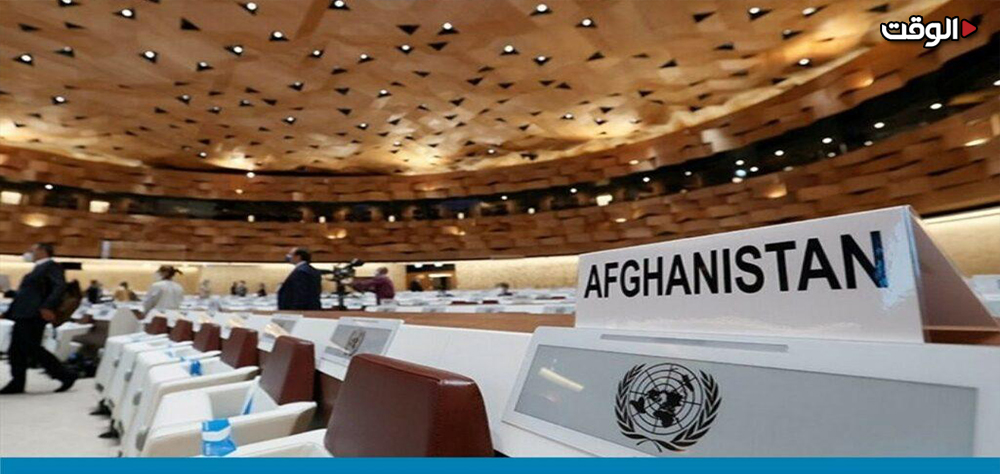The expectations of Afghanistan's populace have been eclipsed by the conflicting agendas of influential actors. This presents a hurdle to attaining global agreement that aligns with Afghanistan's national priorities.
ALWAGHT- While some politicians and political analysts are extensively discussing the achievements of the Doha peace talks, a two-day United Nations session on Afghanistan, attended by representatives from more than 25 countries related to Afghanistan, is currently taking place in Doha, the capital of Qatar. Hassan Kazemi Qomi, as the Special Representative of the President for Afghan Affairs, is participating in today's session in Doha. The first round of this session was held in May of last year, and now, in the second round, this session has a significant "missing participant." Taliban officials have announced that they will not participate in this ceremony.
Meanwhile, the Doha session is being held while the international community has so far refrained from recognizing the Islamic Emirate government officially and has conditioned it on certain terms, including the formation of an inclusive government and guaranteeing the rights of ethnic and religious minorities and women.
Amidst these circumstances, the unfavorable economic conditions, coupled with Western sanctions and the blocking of Afghanistan's dollar assets in international banks, have worsened the living standards of the people of Afghanistan over the past two years, making the outcomes of regional and international meetings regarding support for Afghanistan all the more significant.
At the Doha conference, enhancing engagement with Afghan authorities and appointing a special envoy for Afghan affairs are the two stated objectives of the two-day UN session. However, thus far, there has been no indication from the Islamic Emirate authorities of a willingness to pursue these goals.
In this context, ALWAGHT has conducted discussions with "Kazem Zohrehvand," a former diplomat of the Islamic Republic of Iran, regarding the conference's intricacies and its potential impact on Afghanistan's political, economic, and stability landscape.
Initially, Abolfazl Zohrehvand addressed the goals of the Doha conference, noting its role in the US crisis management process in the region, with the United Nations assuming a pivotal role. He further stated, "Their objective is to engage in demanding dialogues, particularly involving women and anti-Taliban factions, while stressing the necessity of engaging with the Taliban. This entails appointing a special representative for Afghanistan and striving for an inclusive government."
The former Iranian ambassador expanded on the Doha conference's governance approach in Afghanistan, remarking, "The organizers' overarching strategy is to align the Taliban with US regional objectives while maintaining their presence in Afghanistan's political arena. They also aim to encourage anti-Taliban factions to engage in cooperative frameworks and governmental roles, averting significant conflicts and thwarting attempts to overthrow the Taliban."
This former diplomat, commenting on the Taliban's clear stance and their decision to abstain from participating in this session, remarked: "Given the Taliban's perception of themselves as a dominant force, they interpret this conference as not aimed at bridging the gap between the two sides, namely the Taliban and their adversaries. They perceive themselves as the sole representatives of the Afghan nation. Consequently, initial agreements suggested Mullah Baradar's visit to Doha solely for a meeting with Mr. Guterres."
In discussing the expectations of the Afghan people from the global community, this expert in Afghan affairs expressed: "Afghanistan's populace finds themselves at an impasse, while the United Nations and international bodies have the potential to echo their voice and establish a reliable point of reference. Hence, amidst the existing fragmentation among diverse factions and anti-Taliban groups, coupled with a lack of unified direction, alongside shared interests with Western nations and the perplexity within Afghan society and factions, these conditions lay the groundwork for exploitation. The perpetuation of this state risks the complete erosion of the nation's capabilities. The United States has a prime opportunity to stabilize the situation in Afghanistan and integrate the management and restraint of Iran, Russia, and China into its agenda."
Zohrehvand stressed that there isn't an autonomous player in Afghanistan's national interests: "Certain nations align with the Taliban's agenda, while others synchronize with the interests of America and its allies. Hence, the people of Afghanistan do not have an independent representative."



























